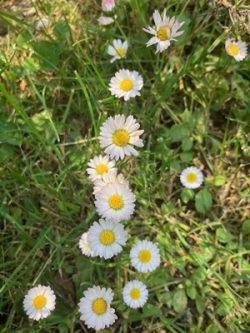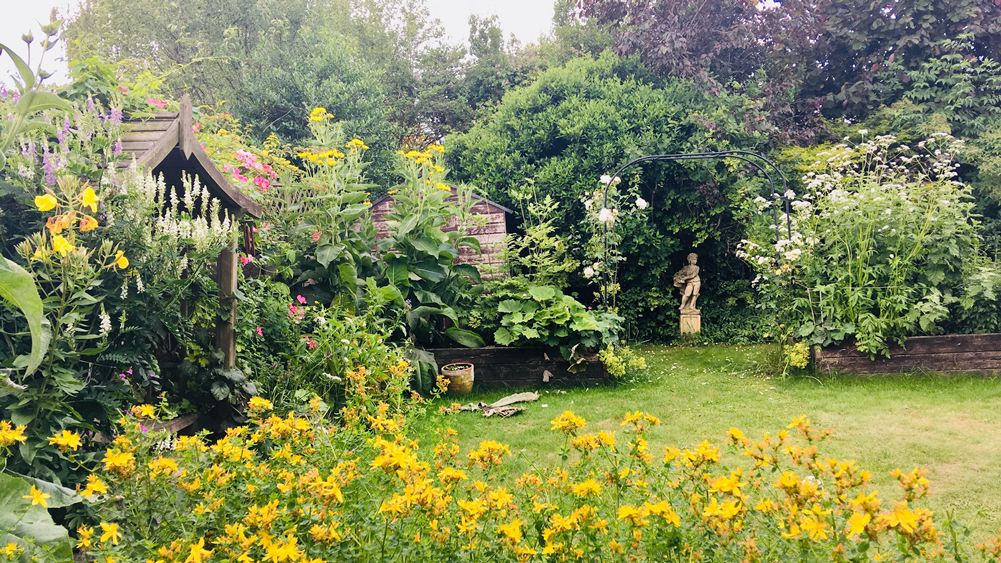
Spring and summer are very busy times of year for me, as I race around trying to catch up with the abundance of Nature while she provides wonderful herbal medicines.
After seeing my patients in the mornings, my afternoons are often spent collecting herbs, making tinctures, pressing tinctures and collecting more herbs. So, I thought I would take you on a virtual walk around my garden to see what I am harvesting now, and what I use it for.
I will point out that I don’t harvest alone. It is overseen by blackbirds (Matilda and Stuart) who follow me around, fussing around the leaves, chattering to me about their lives. Robin also keeps an eye but he is less engaged in my activities than the blackbirds. Mrs Mouse sneaks back and forth under the raised beds hoping to find dropped seeds, and Bramble, the golden retriever next door likes me to tell her what I am doing too. Of course, Adrian loves to help me pick and press, for which I am very grateful.
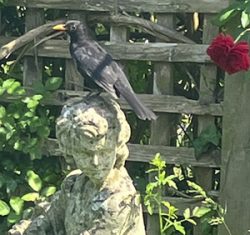
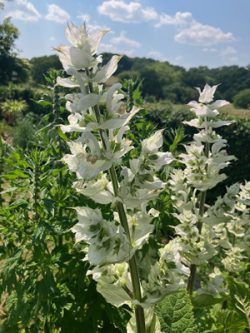
Clary sage is usually used as an essential oil, which is extracted from the leaves and flower buds. It has an oestrogenic-like action, and is valued for menopausal symptoms. The essential oil is very calming with some anti-depressant actions, so this with its hormonal support makes it useful for pre-menstrual symptoms too.
Mugwort is another hormonal herb, but this time, instead of enhancing oestrogen, it supports the clearing of excess oestrogen.
<img class="size-medium wp-image-2602 aligncenter" src="https://www.botanicamedica.co.uk/wp-content/uploads/2023/06/mugwort-250×333.jpg" alt="Mugwort" /
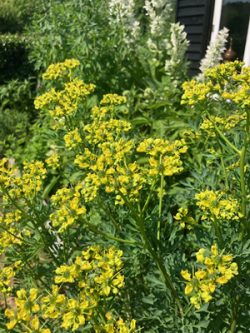
Rue was called The Herb of Grace by nuns who found reading the bible in the dim light to be difficult. They were said to use this herb to improve their eyesight. Today, we use this herb to strengthen ligaments, and so you can see that by strengthening the ligaments and tendons attached to the muscles of the eye, it may indeed have strengthened eyesight.
Echinacea – this is my first Echinacea flower of the season. Science is showing us that the Echinacea tops are immune stimulant, whilst the roots are anti-viral and immune modulating, and – can you believe it, have an effect on the cannabinoid receptors in our body, and so a little known effect of echinacea is that it can be used to treat Generalised Anxiety Disorder as well as viral infections. When I make my tinctures, I mix both tops and roots for a lovely balanced medicine.
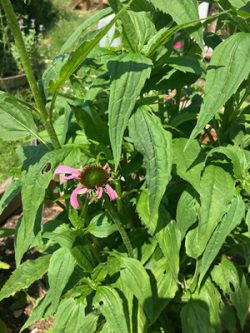
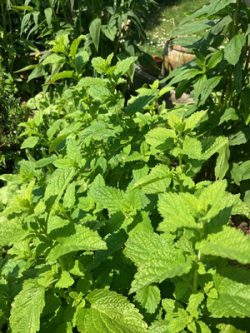
Melissa is an excellent anti-viral and calming herb, making this a great herb for herpes infections, which often flare during stressful times. This herb can easily be grown in a pot on the windowsill, or in your garden, and used if you feel stressed or viral. I find that people who drink Melissa tea tend to sleep very well at night.
Lady’s Mantle is a women’s herb, used for heavy menstrual flow.
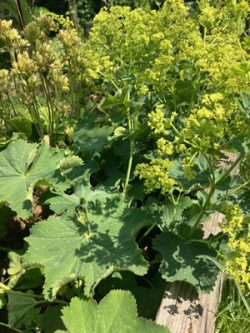
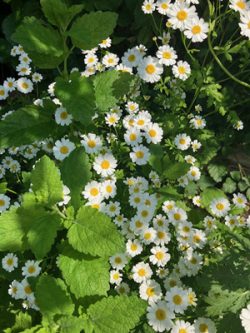
Feverfew is called the aspirin of the garden. It was said to have healed one of the workers who fell off the Parthenon whilst it was being built – hence its name Tanacetum parthenium. Who knows if this is true, but it is a fabulous herb for headaches, arthritis and pollen allergies.
Borage has always been used for courage. Mothers would add it to the ale of their sons to give them the courage to ask for a girl’s hand in marriage. Soldiers drank it before war. I use it to calm down excessive adrenal output when a person feels terribly anxious – as is so often the case these days.
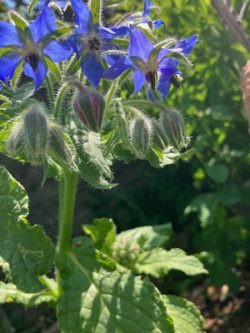
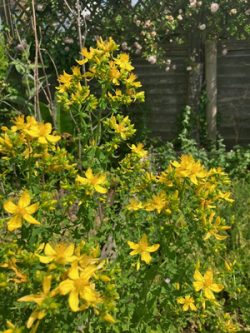
St John’s wort is so much more than just an anti-depressant. It restores an exhausted nervous system, healing both the physical nerves and the emotional aspect of the nervous system. It is a great liver tonic (notice its yellow flowers), and a very effective anti-viral.
Small flower willow herb is a plant that barely attracts any attention other than being pulled out. But you are pulling out a treasure, for it has powerful anti-oxidant, anti-inflammatory and anti-androgenic properties. It has a strong reputation for healing prostate enlargement and prostate cancer. I have a patient with prostate cancer, and this herb is in his prescription. His PSA level has dropped to normal now and we are both ecstatic. Such is the value of our little weeds.
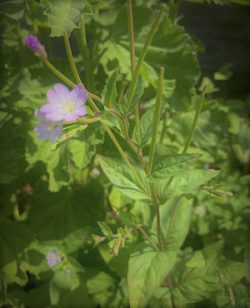
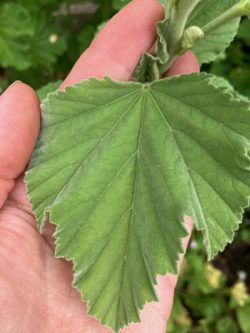
Marshmallow is a beautiful soothing herb. Herbalists use it for soothing inflamed mucous membranes such as gastritis, inflamed lungs, and inflamed bladder. Some folks use it instead of toilet paper too!
Bellis perennis It takes a long time to pick each little daisy, but it pays big dividends. Known as Bairnwort, this herb is very helpful for mothers after birthing their children. I collect and dry a large Kilner jar of these little flowers to provide an arnica-like poultice for new mums, or people who have collected nasty bruises, or even those who have undergone surgery. It is used for deep bruises.
